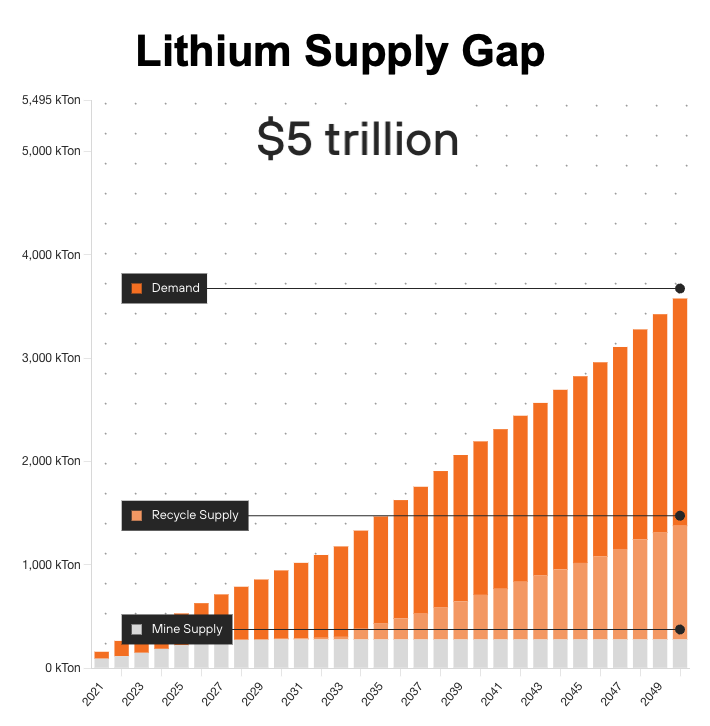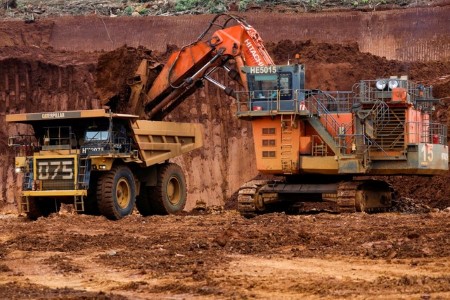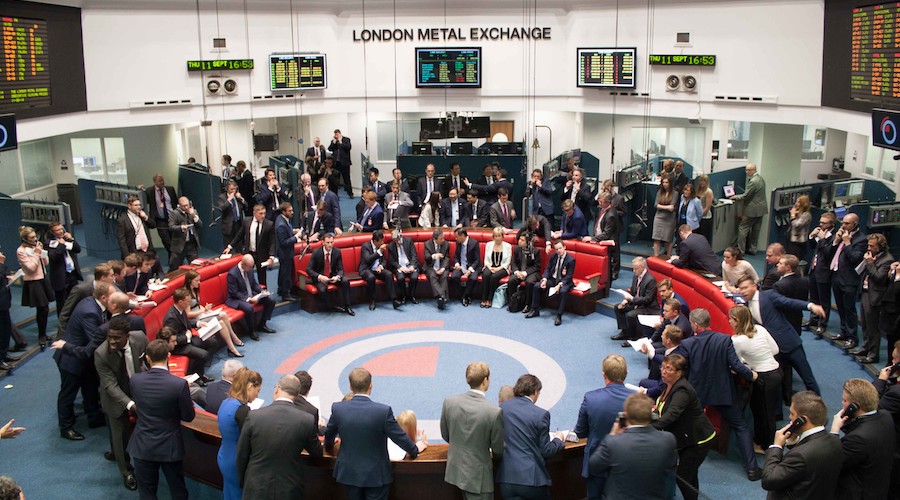KoBold Metals, backed by a coalition of billionaires including Bill Gates and Jeff Bezos, has launched a four-continent search for deposits of lithium, the coveted metal used in batteries that power electric vehicles (EVs) and high tech devices.
The California-based startup, already working on opening a new copper-cobalt mine in Zambia, will deploy the latest technology to search for lithium in South Korea, Quebec in Canada, the United States, Australia and Africa, it said in the statement.
Chief executive Kurt House noted the addition of lithium to the portfolio of battery metals KoBold wants to mine follows successes in exploring for nickel and copper in Canada and Zambia.
“Two years ago, we hired lithium luminary Prof Robert Linnen to be KoBold’s Chief Geologist, Lithium, and since his arrival, we’ve been studying the fundamentals of lithium geochemistry,” House said. “We’re now deploying those insights [and] over the next decade, KoBold aims to develop enough new lithium to power hundreds of millions of electric vehicles.”
The company, which uses machine learning to look for deposits of critical minerals, identified earlier in the year a lithium prospect in a region of the Baie James in Canada. The area in which it found it was previously thought to have no economic lithium deposits.
One of the Silicon Valley firm’s main objectives is closing the supply-gap needed to electrify transportation, which in the case of lithium will reach the $5-trillion mark according to the company.

Besides its activities in Zambia, KoBold is active in two other African countries — Namibia, where is exploring for lithium, and the Democratic Republic of Congo (DRC), where it plans to begin exploration in coming weeks.
It also has exploration activities underway in South Korea, Australia and the United States.
From Canada to the world
Kobold’s quest for battery metals began three years ago in Canada, after it acquired rights to the area in northern Quebec, just south of Glencore’s Raglan nickel mine, where it detected lithium.
The start-up now has about a dozen exploration properties in places including Zambia, Quebec, Saskatchewan, Ontario, and Western Australia, which have resulted from joint ventures like with BHP and with BlueJay Mining (LON: JAY) to explore for minerals in Greenland.
All those assets contain or are expected to be sources of battery metals.
Using artificial intelligence, Kobold aims to create a “Google Maps” of the Earth’s crust, with a special focus on finding copper, cobalt, nickel and lithium deposits.
It collects and analyzes multiple streams of data — from old drilling results to satellite imagery — to better understand where new deposits might be found.
Algorithms applied to the data collected determine the geological patterns that indicate a potential deposit of cobalt, which occurs naturally alongside nickel and copper.
The technology can locate resources that may have eluded more traditional geologists and can help miners decide where to acquire land and drill, the company said.
Following a two-year rally to an all-time peak in 2022, lithium prices have collapsed due to an oversupply and a weaker-than-expected growth in battery demand.
Rising interest rates have dampened global EV sales, prompting some carmakers to revise their plans and analysts, including consultancy Benchmark Mineral Intelligence, believe the lithium market will remain in surplus until 2028.



